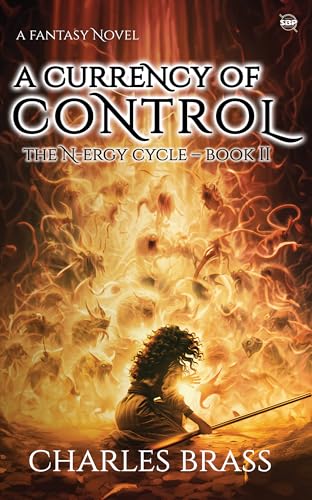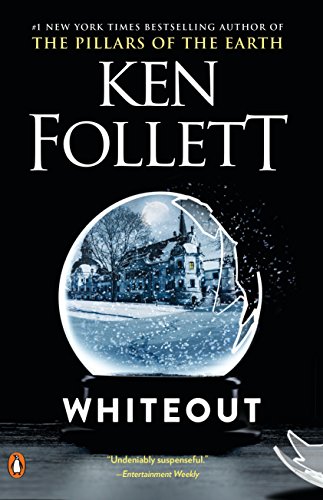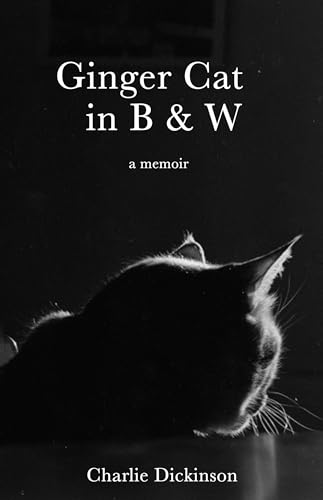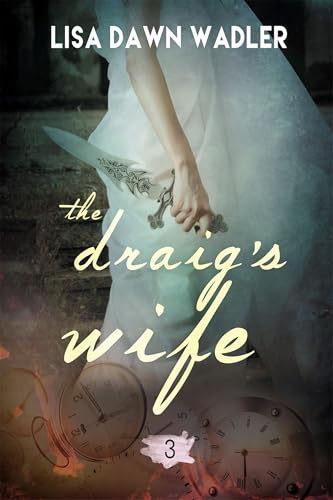By Stephen Windwalker
Editor of Kindle Nation Daily ©Kindle Nation Daily 2010
On the day after Thanksgiving, 1868, George Armstrong Custer and the Seventh Cavalry attack a sleeping Cheyenne village on the banks of the Washita. Ironically, the village was presided over by Black Kettle, the foremost peace chief of the Cheyenne Nation. During the senseless slaughter of men, women, and children, the soldiers find Eden Murdoch, a white woman presumed dead years before. The army expects to use her for propaganda purposes to refute accusations that the Cheyenne village posed no threat to white settlers, but Eden stubbornly refuses to cooperate.
Custer’s young and inexperienced aide-de-camp, Captain Brad Randall, is assigned the task of looking after Eden and locating her family. Beginning to doubt the U.S. Army’s goals and struggling to act honorably, Brad becomes obsessed with learning the truth behind Eden’s bizarre journey, and when Eden begins to reveal it, his own future changes. Eden and Brad unexpectedly set in motion events that will resonate all the way to the Little Bighorn.
“Michelle Black’s An Uncommon Enemy is a clear-eyed and moving narrative of life among the Plains Indians, and of the reality of their struggle for existence against the elements and Manifest Destiny. But that was not enough for Black, who uses the business of Custer’s missing ring finger to propel her story into the realm of great detective fiction. This is the closest thing to a collaboration between Jack London and Wilkie Collins.”
Click here to download the entire book for just $2.99 from the US Kindle Store.
An UnCommon Enemy
a Novel of the Washita
by Michelle Black
Copyright © 2010 by Michelle Black and published here with her permission.
“Custer, I rely on you in everything, and shall send you on this mission without orders, leaving you to act entirely on your own judgment.”
Fort Hays, Kansas, September 30, 1868.
“We will probably remain out until we can do the Indians considerable damage. I hope to find a village in two or three weeks, if I do, look out for scalps.”
8 miles below Fort Dodge, November 8, 1868.
November 27, 1868
Washita River, Indian Territory
In the soft silence between sleep and wakefulness, the morning began like a hundred others. Seota opened her eyes thinking she heard a noise. She decided it must be the faint rustling of little Gray Wolf, her sister Red Feather Woman’s six-month-old baby, another early riser.
The fire in the center of the lodge had died to glowing embers and now barely advanced against the morning chill. Seota reluctantly pulled a blanket around her shoulders and crept out to fetch more firewood. She could see her breath in the receding moonlight as she regarded the predawn sky and shook the snow from the twigs and small branches of the little woodpile. A bright star rose on the southern horizon just above the ridge line. It shone there vividly, like a beacon. She paused in the frigid stillness to contemplate its eerie, singular beauty.
The sharp sound of Red Feather’s baby demanding attention broke her reverie. She hurried back into the lodge and gently took the baby from its place by its mother so as not to wake her. Poor, frail, little Red Feather Woman was still so weak from the illness that had dogged her throughout the fall.
Seota tossed a few twigs onto the fire with her free hand before she nestled the baby into the crook of her arm and put him to breast as she had done so many times since the still birth of her own baby five months before.
Red Feather was grateful to her for volunteering to nurse her tiny son, but in truth, Seota’s motives had not been entirely altruistic. Serving as wet nurse to her sister’s baby had eased the pain of her own loss. Secretly, she coveted Red Feather’s beautiful, perfect, healthy child. Of any prize on earth she could be offered, she longed only for this: a child of her own.
Seota worried about Red Feather Woman. How would her sister ever regain her strength when the entire tribe was starving? The Tsitsistas, the Cheyenne, had spent nearly four years at war. The hardships and privations they suffered grew daily. Buffalo and game were scarce in this new territory. Their shared husband, Hanging Road, said they would be slaughtering and eating the camp dogs and ponies soon. Most of the ponies were too weak to serve a higher function anyway.
Her other sister, Nightwalking Woman, murmured and stretched. She opened her eyes momentarily, exchanged a faint smile with Seota, then turned over on her robe.
The lazy smoke from the small fire now caught the pale, morning light as it slowly filtered through the opening in the top of the lodge. Seota luxuriated in this quiet time she spent with little Gray Wolf in her arms.
She heard the far-off sound again. A low rumble, like thunder, yet not quite. She tensed, listened. Surely not trouble. Please, not trouble. Chief Black Kettle had just returned the day before from Fort Cobb on a mission of peace. But he had not returned with any satisfaction. In fact, the man there had warned him that soldiers were already in the field. Controversy had arisen the moment he returned as to what the tribe’s next action should be.
Black Kettle had held a council, attended by Hanging Road and all the other important men of the tribe. They smoked on the problem and eventually decided to move their lodges closer to the other villages farther downstream in two days time. If soldiers were seen sooner than that, they could send out runners to tell them they did not want war.
This decision was met with the loud objections of Medicine Woman Later, Black Kettle’s formidable wife. She had good reason to fear white soldiers. Her body carried the scars of nine bullet wounds from the treachery of Sand Creek, four years past.
Upon returning to his home, Hanging Road had informed his concerned wives that he personally doubted the story that soldiers were in their country. Everyone knew the white government seldom made war in the wintertime. He claimed their soldiers were too puny and spoiled to venture out for a winter campaign. “Fair Weather Warriors,” he had called them with sneering contempt and all but Seota had laughed.
“Nightwalking, did you hear that?” Seota asked in a low voice.
Nightwalking sat up sleepily, then also snapped to attention, listening. The sound came from the village dogs, but not the usual break-of-day barking, more like a nervous yipping. She flashed a worried glance at Seota. “Get dressed.”
“But I’m not finished-“
“Get dressed!” Nightwalking immediately began pulling on her own dress, leggings, and moccasins. She pinched Red Feather’s arm and ordered her to dress as well.
A single, loud POP-like a dry twig being snapped right next to one’s ear-broke the calm of the frozen morning.
A warning shot! All three women jumped into frantic action.
“Where is Hanging Road?” Red Feather asked as she took her now-screaming baby back from Seota. Little Gray Wolf kicked and squirmed, searching for the nipple from which he had been so abruptly removed.
“He left last night to see about Lame Dog’s child. You know, the one that coughs,” said Nightwalking. Hanging Road treated the sick, both the physically and the spiritually ailing; Seota helped him in this calling, though he had not bothered to wake her the night before. Now she wished he had. Being with him, no matter where, seemed preferable to not knowing his fate at such a critical moment.
Now they heard the sound they had come to dread most–a distant trumpet-the soldiers of the United States being called to battle.
Red Feather’s lips trembled as she looked over at Seota frantically. They could now hear the pounding hoof beats of the approaching horses and men with foreign voices shouting “Huzzah, huzzah!” with a manic fervor.
And above it all, Seota heard strains of music. Band music. A military band. In some far corner of her memory, she knew the tune. An Irish one.
“We must run,” Red Feather said, clutching her baby tightly to her chest.
“No, we must wait for Hanging Road to come to us,” said Nightwalking.
Seota agreed with Red Feather, but did not wish to contradict the oldest member of the family. She did not know what horror awaited outside the mystical circle of their home, yet any action seemed preferable to cowering in the tepee and waiting for certain doom to arrive on horseback.
Screams and shouts were heard as the Cavalry arrived in a thunderous tumult. Gunshots. Shrieking women. Wailing children. Wounded men. Galloping horses. The acrid smell of smoke filled the air from pistols and rifles fired in every direction. A nightmare made flesh in the early light of day.
The three women heard a commotion immediately outside the tepee. Nightwalking thought it was her husband coming to rescue his family and foolishly threw back the entrance flap. A loud blast sounded and she was thrown back into the lodge. Seota and Red Feather stood over her and looked down in paralyzing disbelief. Nightwalking’s eyes stared up lifelessly below a neat round hole in her forehead.
The two young women clutched each other in fear, the baby squeezed between them in their embrace.
“We’ve got to run,” Seota urged.
Red Feather shook her head as panic seized her, immobilizing her. She held her baby so tightly, Seota feared she would harm him.
“Come, Red Feather. Follow me!”
“No, no, no. Nightwalking told us to wait for Hanging Road!”
“We must run!” Seota didn’t want to add this, but she had to. “Hanging Road is probably already dead!”
Seota knelt down over the body of Nightwalking and cautiously peeked out the opening of the tepee. A chaos of flashing gunpowder and running bodies swirled before her eyes as the echoing report of rifle fire pierced the frigid morning air over and over.
She dropped the flap, ran to the opposite side of the lodge, knelt down, and yanked away the tepee liner, careless of the beautiful paintings Hanging Road had so painstakingly applied last summer. She brushed aside the dried grasses stuffed between the liner and the heavy outer wall and hurriedly attempted to peel it upward.
Snow had fallen to knee depth after two days of freezing rain. The edge of the tepee lay stubbornly frozen to the earth. She pulled with all her might, bracing her elbows against her knees, and finally the leather edge yielded. She peeked out from under it and saw no one in her immediate line of sight. Their lodge sat on the northernmost edge of the village. The cottonwood trees and brush lining the creek lay a mere ten yards away.
“This way, quickly.”
Red Feather looked at her with uncertainty, then did as she was told. She crawled out from under the tepee wall, then reached back in for her baby to be handed out.
Something made Seota glance about the lodge one last time before joining her sister. Her eyes fell upon a small beaded bag behind Hanging Road’s back rest. His medicine bag. The special one. He hadn’t taken it with him last night because he reserved it only for the most sacred occasions. She grabbed the small leather pouch and stuffed it down the front of her dress for safekeeping, then dove out from under the wall of the lodge to join Red Feather.
Flames engulfed the village, fifty lodges and more.
Both women dashed for the frigid, waist-deep water of the river. The little crusts of ice that had formed along on the dark red bank of the stream made their descent into the Washita difficult and treacherous. Heedless of the freezing cold, they waded across and sought cover in the brush of the far bank. Once there, they huddled in silence as the battle raged so close and yet somehow removed, like a strange dream in which one merely watches and does not participate. Soldiers of the United States swarmed everywhere, like a plague of hornets.
Baby Gray Wolf still squirmed and cried, not so much from hunger now, but fear. He sensed his mother’s agitation. Red Feather covered the child’s face with her hand to keep him quiet.
Both women crouched in rigid stillness as they heard the approach of horses. Seota raised her eyes above the prickly branches of the leafless bush that hid her and watched two soldiers on horseback make their way down the creek. They were looking for people hiding, such as Red Feather and herself. She ducked under her cover again and glanced over to her sister and the baby. To her horror, she saw Gray Wolf’s little face turning dark from lack of oxygen. She gestured frantically to Red Feather, finally caught her eye, and pointed first at the baby in her lap and then at her mouth. Red Feather responded with blank confusion, but then looked down at her child. She instantly removed her hand from the child’s face. The baby coughed twice, then howled, immediately alerting the soldiers to their hiding place.
“Over here, Ben!”
The two men urged their horses back across the frigid river.
The women jumped up and ran away from the river bank, but the two mounted soldiers were quickly at their sides.
“Look, Jim, this one’s got her papoose with her.” The soldier called Ben reached down in an effortless motion and snatched Red Feather’s baby from her.
Red Feather Woman screamed and jumped in the air in a fruitless attempt to pluck the child back from the soldier’s grasp.
At Red Feather’s scream, Seota turned and looked over her shoulder. She saw a laughing man on horseback dangle the baby by its foot just out of the reach of its hysterical mother.
Seota stopped and watched in horror. The soldier chasing her stopped as well, either entertained by the spectacle or at least curious what would happen next.
Red Feather Woman shouted, begged, and pleaded helplessly in her Cheyenne tongue, as the man continued his hideous, taunting game. Then she pulled her knife from her belt and tried to drive it into the man’s thigh, but he jerked his horse away just in time to avoid the strike.
“You filthy Injun bitch!” The soldier kicked Red Feather in the face and she fell to the ground, momentarily senseless. The soldier’s horse reared and snorted, its hooves narrowly missing Red Feather’s prostrate body.
She managed to raise her head and look up in time to see the soldier raise her baby high in the air.
“No, don’t do it!” screamed Seota. “In the name of Jesus Christ, don’t do it!”
But the plea had not left her mouth before the soldier slammed the baby to the ground with such force it bounced once, before crumpling into a lifeless little heap. Red Feather threw herself on top of her child just as the other soldier shot her squarely in the back with his revolver.
“Damn you all to Hell!” shouted Seota.
Both men now halted on their mounts and stared at her.
“Did you hear that, Ben?” asked the soldier nearest to her.
“Yep.”
They continued to gape. Seota stood frozen, clutching her red woolen blanket tightly around her head and shoulders.
“What should we do?” Jim said, his eyes never straying from Seota.
The soldier called Ben glanced back to the village where the fires sent billowing black smoke into the November sky obscuring the pale winter sun. “Go get that new captain. See him over yonder? That tall drink of water. Randall’s his name. Let’s make this his problem.”
The soldier called Jim rode off in the direction of the captain while the murderer of baby Gray Wolf leveled his pistol at Seota. She analyzed her chances for escape. Before she could break and run, the other soldier returned with the captain.
They rode over the snow-covered ground and crossed the creek bed quickly. Captain Randall was a lean, sandy-haired young man. He blotted blood from a wound on his forehead with a handkerchief.
“She spoke to you in English?” he asked as they approached.
“Yes, sir, she surely did.”
“What did she say?” The young captain studied Seota. Every time he removed the handkerchief from his forehead, blood trickled over his brow and down the side of his face. One such drip slid into his eye and caused him to squint and blink.
“She said, ‘In the name of Jesus Christ,’ plain as day.”
The captain frowned as he busily wiped the blood out of his eye. “She probably picked up the phrase from a missionary.”
“Then she said, ‘Damn you all to Hell.’ What kind of Injun squaw knows how to curse that good?”
Seota stood motionless as the three men gazed down upon her from their horses. Captain Randall dismounted, fastened his reins to a nearby bush, and walked toward her.
“What is your name, woman? Do you speak English?”
Seota said nothing. Her heart pounded fiercely as she clutched the blanket even more tightly about her head, obscuring her face. The tall young man took another stride nearer and she instinctively stepped back.
“I’m not going to hurt you.” He held his handkerchief again to his bleeding forehead, but lifted his other hand in a calming gesture.
A dozen soldiers rode near, splashing them all as they passed. Captain Randall called to the leader of the group. “Major Elliott? I think I’ve found-“
“No time to talk, Randall. We’re giving chase to that bunch who got on down the river. I need volunteers!”
The two enlisted men looked to the captain for direction and he nodded for them to join Major Elliott.
The major called back with a jaunty cynicism, “Here goes-for a brevet or a coffin!”
The group of soldiers rode away at full gallop following the stream. The captain returned his attention to Seota.
“If you understand what I’m saying, tell me your name.”
Seota heard the screams of the wounded and dying from the village. Her eyes quickly scanned the surrounding hills for sign of rescue. Farther up along the horseshoe bend of the river lay the Arapaho village of Little Raven and the Cheyenne camp of Medicine Arrows, with Kicking Bird’s Kiowas below them. In all, nearly six thousand Indians had gone into winter camp on the Washita that year. Groups of warriors from those villages now gathered on the ridges overlooking the river valley, but they were too late. Black Kettle’s village was already lost.
The captain reached out and caught Seota’s wrist in his bloody, gloved hand and yanked her toward him so hard she nearly lost her footing. The blanket she clutched around her head fell to the ground, revealing the color of her hair.
Randall gasped and with his free hand, examined a tangled, dark auburn lock of it. In bewilderment, he whispered, “Who are you?”
Tears of misery and dread filled Seota’s eyes. Did she even know the answer to that question anymore? Her chin trembled. She looked up into the young man’s face with a frantic, hopeless despair. She drew a long, ragged breath and knew that for the second time in four years, her life would change forever. She placed her hand to her bosom to press the small medicine bag to her heart, hoping it might give her some sort of strength and at last she spoke:
“Eden Elizabeth Clanton Murdoch.”
Click here to download the entire book for just $2.99 from the Kindle Store.














